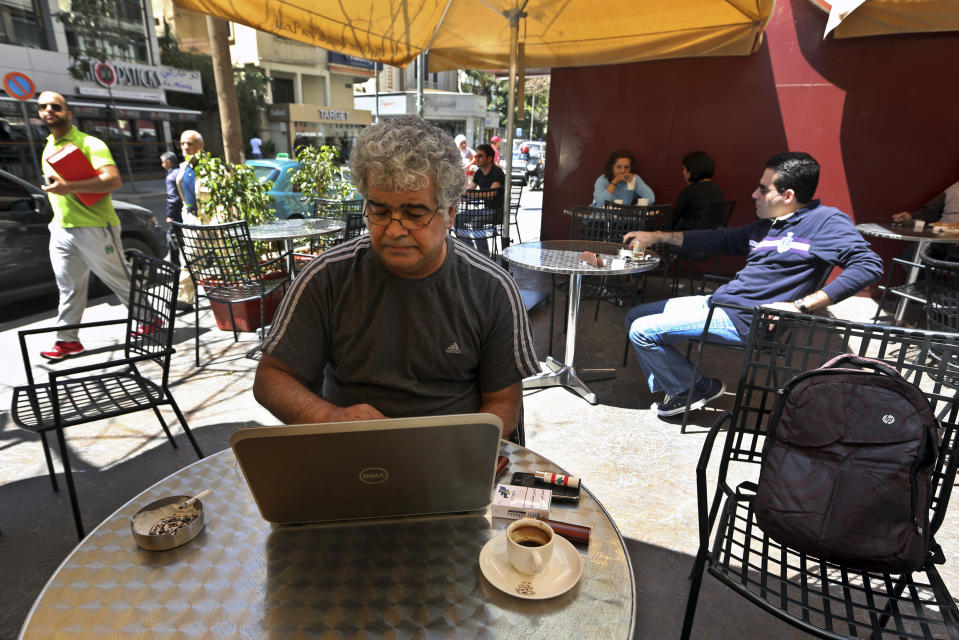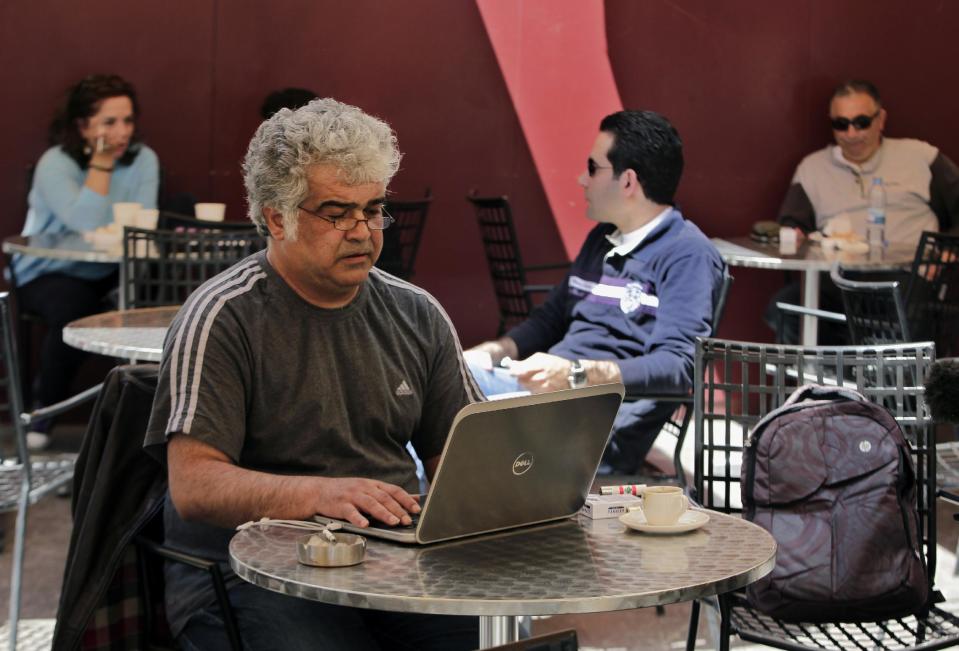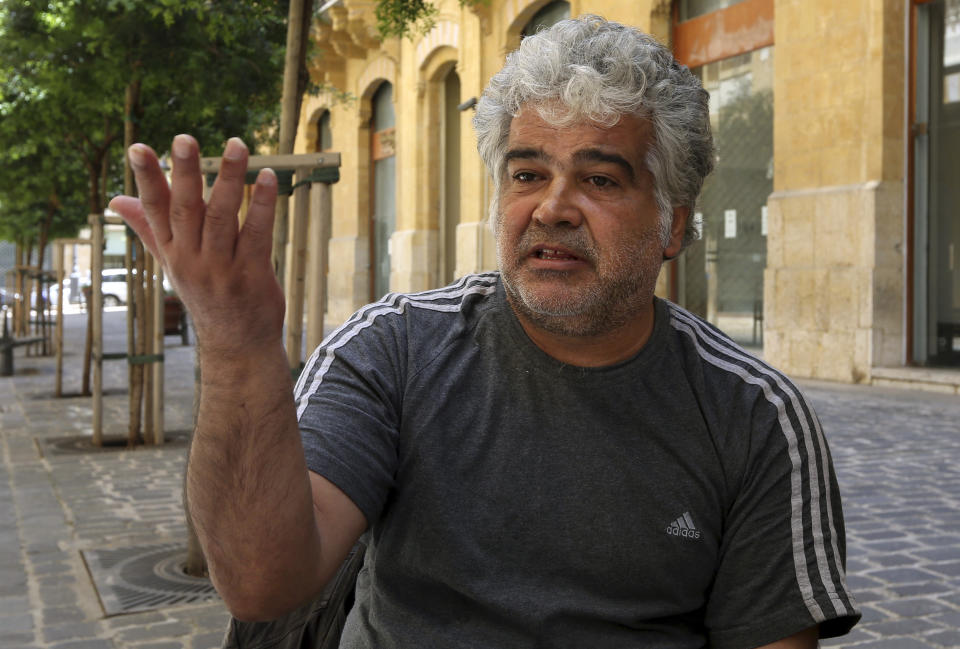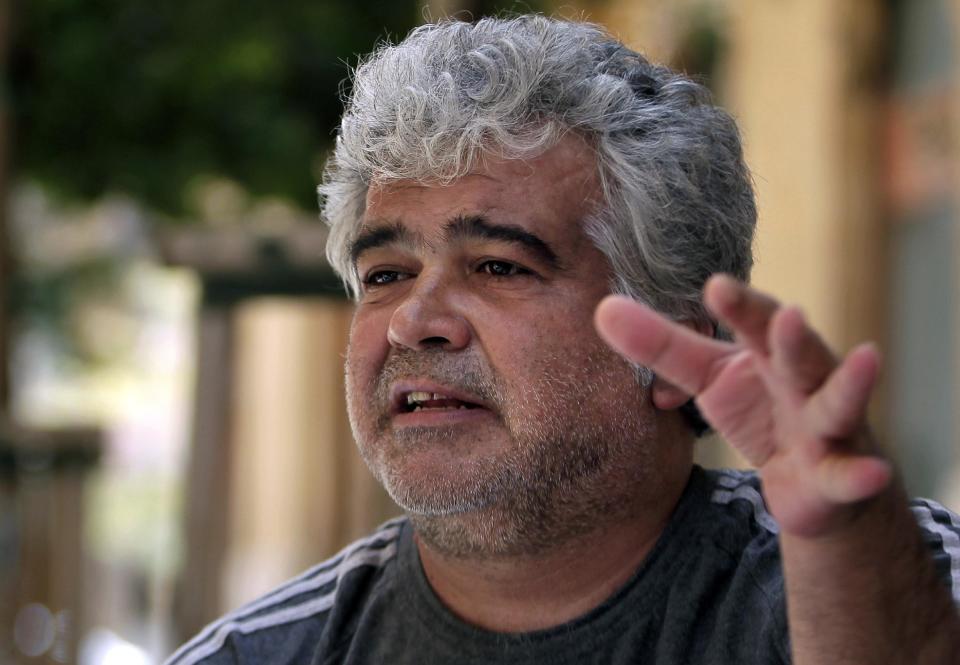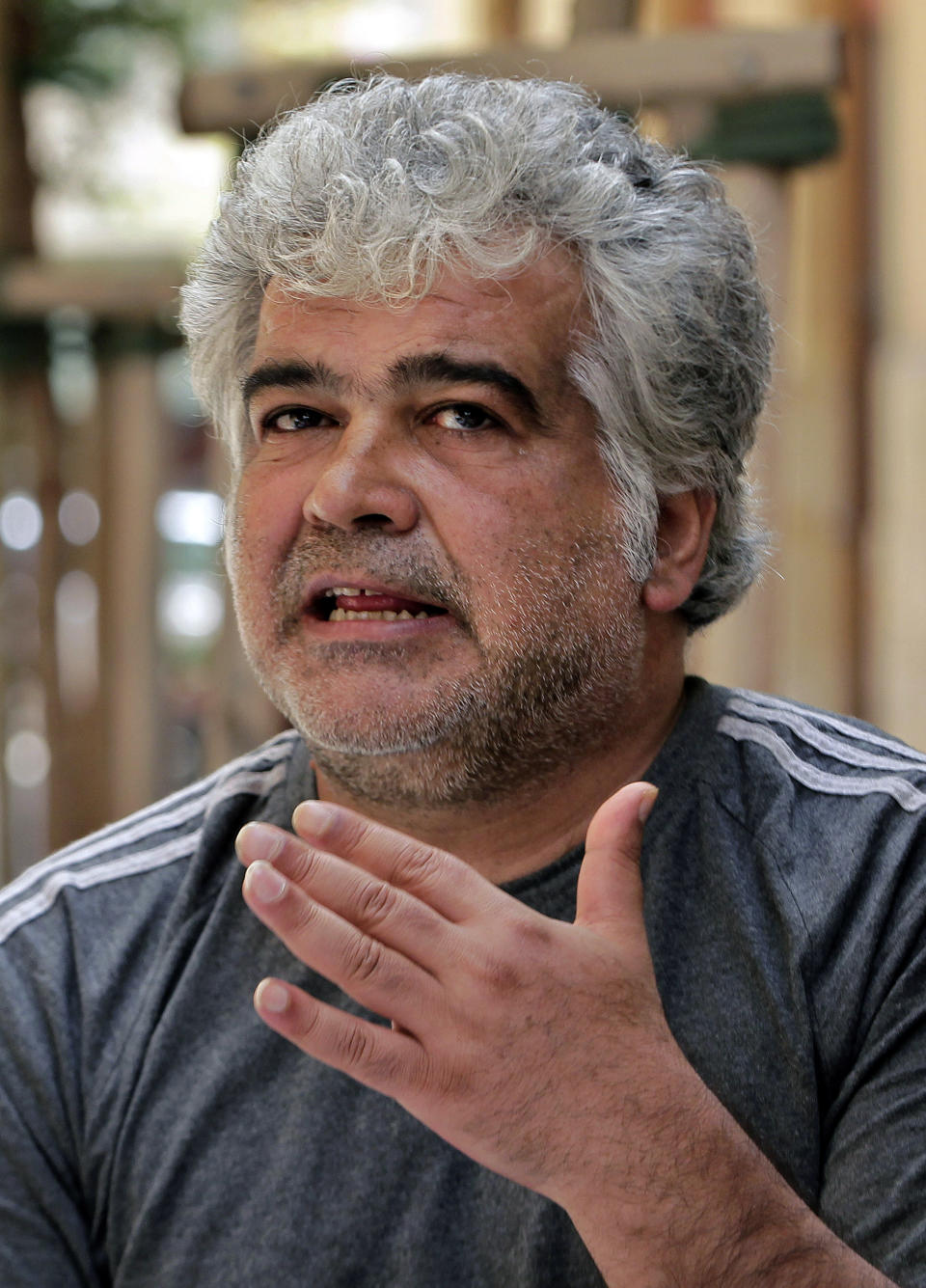Syrian novelist hurts for his country's bloodbath
BEIRUT (AP) — Sitting in a cafe in downtown Beirut, Syrian novelist Khaled Khalifa's thoughts keep wandering back to his home and favorite place in the world, the northern city of Aleppo, much of which now lies in ruins, demolished by civil war.
For him, the ancient metropolis is much more than a beautiful city known for its majestic, 13th century citadel, spicy cuisine and maze-like covered bazaar. It is his inspiration, the center of his pain, the place where the seeds of rebellion against an oppressive government were formed.
His latest novel, "No Knives in This City's Kitchens" — which he finished writing just before Syria's turmoil began three years ago — is centered in Aleppo, depicting a society's stifled aspirations through the story of one Syrian family. The book, his fourth work set in Aleppo, won Egypt's Naguib Mahfouz Medal for Literature in 2013 and was short-listed for this year's International Prize for Arab Fiction, a prestigious literary prize run with the support of the Booker Prize Foundation in London.
"I don't know what it is. Every time I try to write a novel which is not about Aleppo, I fail," Khalifa said in an interview with The Associated Press in Beirut, stopping over on route to Abu Dhabi for the ceremony for the prize, which on Thursday was awarded to Iraqi novelist Ahmed Saadawi.
Aleppo isn't the only recurring theme in his books. Khalifa often explores how dictatorship and repression eat away at societies. Over the years, that has made him the target for harassment. In 2012, he was beaten up by plainclothes security forces during a friend's funeral in Damascus.
The government of President Bashar Assad banned him from leaving Syria well before the current conflict began in March 2011. Authorities made an exception for his trip to Abu Dhabi because of the nomination — a sign that while they may not like his work, they seem to appreciate the prestige.
The war has polarized Syrians into supporters and opponents of Assad, including artists, many of whom have been targeted during the uprising. Popular cartoonist Ali Farzat was beaten and both his hands broken before being dumped on the side of the road after he compared Assad to Libya's dictator Moammar Gadhafi. Syrian actress Mai Skaff, a popular star of historical TV dramas, fled along with dozens of other artists after she was targeted by a government campaign.
Khalifa, who lives in Damascus, is cautious. The round faced, gray-haired man with a seemingly permanent smile declined to speak directly about the government or the rebels.
Born to a peasant family in a village near Aleppo in 1964 — a year after Syria's still ruling Baath Party took power in a coup — Khalifa considers himself from a generation that was cheated of a proper youth.
He bitterly recalls the late 1970s and early 1980s, when revolts by Sunni Islamists against the rule of Assad's father, Hafez, were brutally crushed, culminating in 1982, when entire neighborhoods of the city of Hama were leveled and thousands killed. The backlash carried over to other perceived opponents elsewhere in the country.
"For our generation, the '80s were a painful time. I was young, and Aleppo was subjected to collective punishment," he said.
Khalifa comes from a lefist-leaning family, traditional foes of the Baath, and his brother and many of his friends were imprisoned in the 1980s. He studied law at Aleppo University to appease his parents, who at the time dismissed a writing career. He eventually moved to Damascus and pursued a life as a writer, with several television dramas and four books to his credit.
In his novel "In Praise of Hatred," Khalifa tells the story of a young girl in Aleppo who becomes increasingly fundamentalist as a result of witnessing the government crackdown on fellow Muslims.
It took him six years to write "No Knives in This City's Kitchens." Soon after he finished, Syria's first Arab Spring-inspired protests began in the southern city of Daraa.
Khalifa was not surprised.
"I always believed there would be a revolution, and I never lost faith," he said. "Life couldn't go on the same way. Change was inevitable and Arabs could not stay outside history for much longer."
What he didn't foresee was that it would turn into a ferocious military crackdown and prolonged conflict — he refuses to call it civil war — claiming the lives of 150,000 people so far.
"I knew there would be fierce oppression, but I never imagined it would be with this sense of abandonment," Khalifa said.
For nearly two years now, his beloved Aleppo has been ravaged by brutal urban warfare between rebels and government forces, each holding roughly half the city. Khalifa visited Aleppo several times early on in the fighting.
"It pains me beyond imagination to see Aleppo in ruins," he said. But other cities have also been devastated, he said. "Just because I grew up in Aleppo doesn't mean that my memories are more precious than the memories of others."
Still, he has hope that in the end Syria will be a democracy. He sees the convulsions around the region from the Arab Spring as an inevitable part of change.
"Despite all the negative things, it is the first time Arabs are thinking, debating, asking for their rights," he said.
"All transformations need time."

